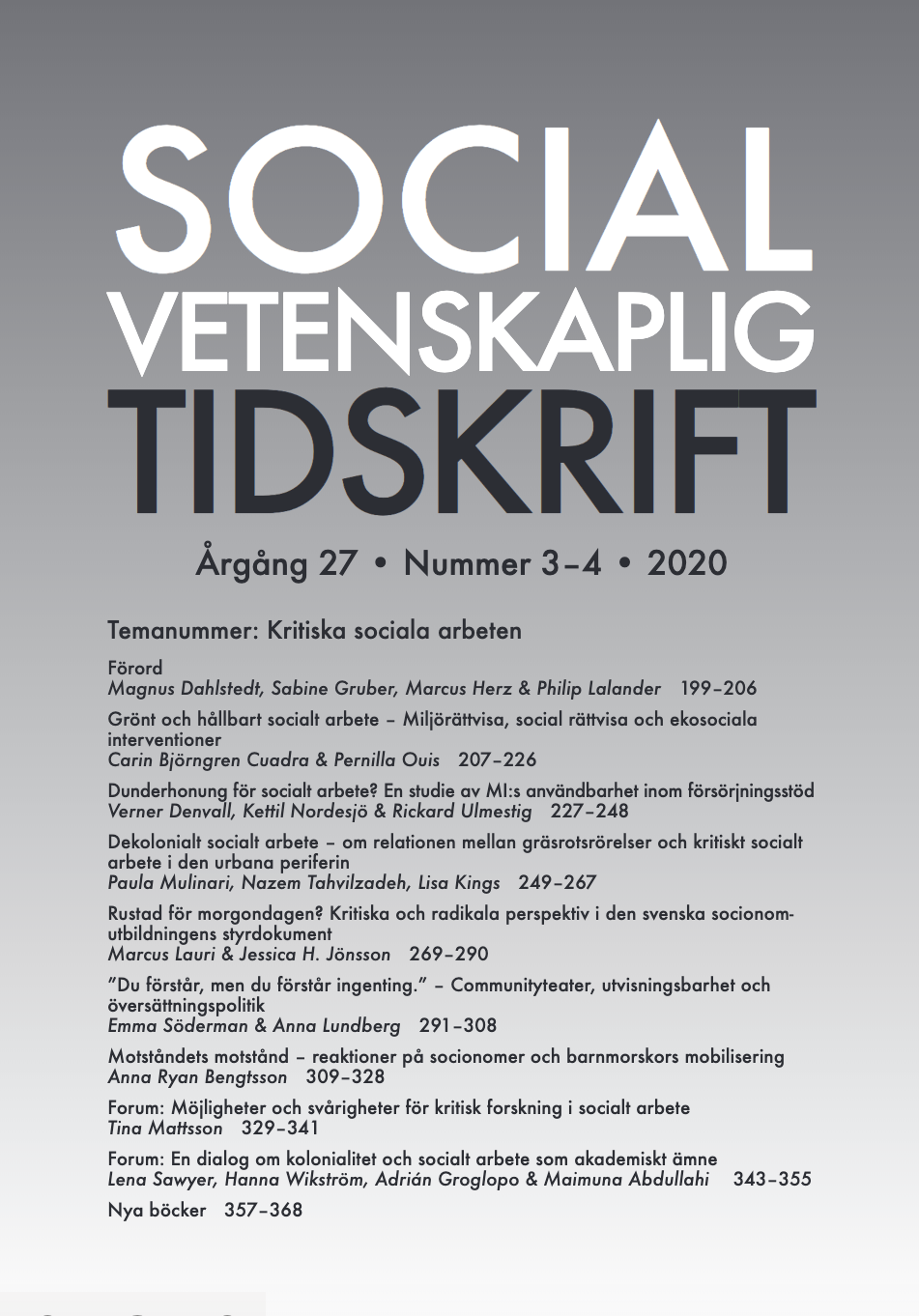”Du förstår, men du förstår ingenting.”
Communityteater, utvisningsbarhet och översättningspolitik
DOI:
https://doi.org/10.3384/SVT.2020.27.3-4.3666Abstract
In the following article, based on two years of participatory ethnographic fieldwork with the No Border musical, as well as interviews with 16 of the musical’s 30 participants, community theatre is investigated in a context of deportability. We analyse the working process in the theatre group, in which actors with and without resident permits participated, through the concept of politics of translation. We show how inequalities due to the constant threat of deportation for several members were brought to the forefront during the work process of creating the musical. It concerned risks of detection for the undocumented participants as well difficult living conditions related to deportability (for example insecure access to livelihood, healthcare, housing etc.). The article conceptualizes various dimensions of working together in a group where participants live in unequal conditions as a politics of translation. This concept includes the work of language translation, and also captures translations of the different experiences mentioned above, and how different positions of power can be handled and understood, within a group with the ambition to work together, in this case on a theatrical performance. Our analysis shows how theatre in a context of asylum rights activism can challenge and create alternatives to the conditions of deportability, while these simultaneously condition the activism and translation. The article contributes to knowledge about mobilization in the context of vulnerability and inequality. We hope to also contribute to a development of critical social work both within and outside academia.
Downloads
Publicerad
Referera så här
Nummer
Sektion
Licens
Allt material i Socialvetenskaplig tidskrift publiceras sedan 2022 (Vol 28 Nr 2) med omedelbar öppen tillgång (open access), under Creative Commons-licensen CC BY 4.0. Upphovsrätten till innehållet tillhör respektive författare.
Allt innehåll i tidskriften är fritt tillgängligt utan kostnad och får fritt läsas, laddas ned, kopieras, delas, skrivas ut och länkas. När innehållet används måste författare, källa och licens anges. Författaren kan fritt göra sin publicerade text tillgänglig på institutionella och internetbaserade arkiv, exempelvis sitt lärosätes digitala arkiv eller andra tjänster för detta.
Inga publiceringsavgifter tas ut vid publicering i Socialvetenskaplig tidskrift.


